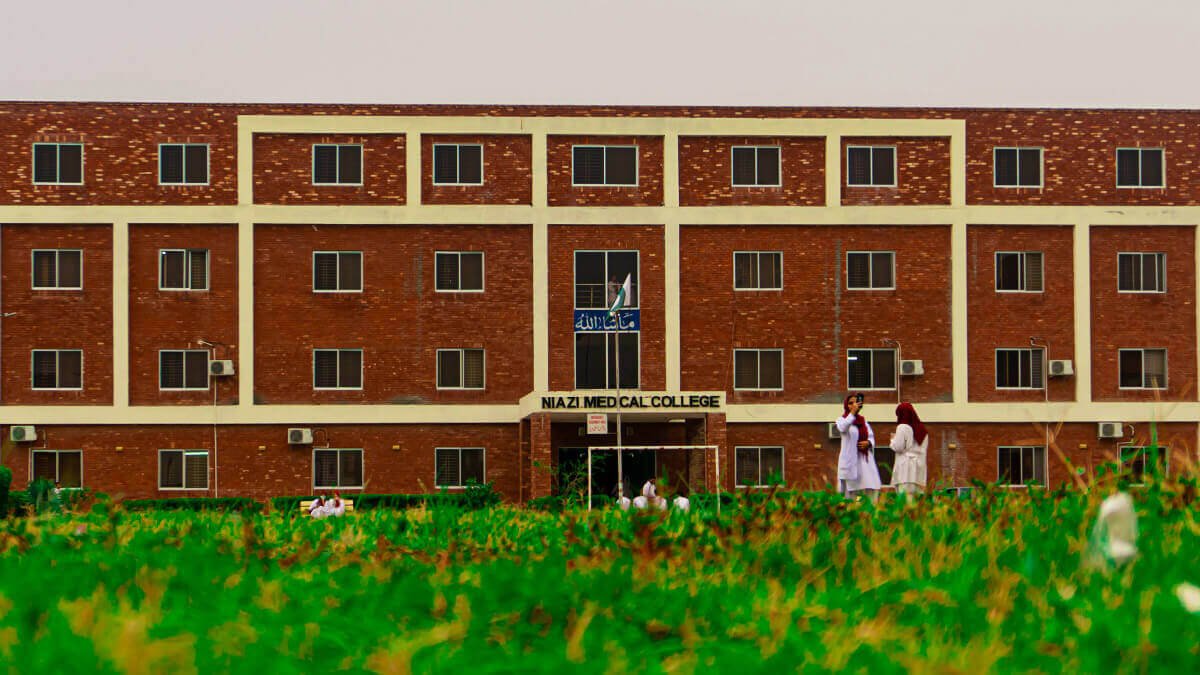MBBS - Bachelor of Medicine and Surgery Programme
MBBS is a five year program followed by one year of house job. The first two years are preclinical years in which normal structure and functions of human body are taught with integration of other disciplines like gynecology, medicine, radiology etc. The program also incorporates concepts of disease prevention, health promotion and psychosocial aspects of health & illnesses in these years. In the next three years, students are exposed to clinical education where para-clinical subjects like Pharmacology, Pathology, and CommunityMedicine are taught along with clinical subjects like Medicine, Surgery etc. The clerkships are designed to equip students of essential clinical and disease management skills. These clerkships foster problem solving, laboratory and radiological data interpretation, management of common diseases and other aspects of community health. This program aims at nurturingcompetent, skilled graduate doctors who can engage in medical practice with effectiveness and security in community as practitioners and they have the appropriate foundation to advance as lifelong learners and excel in a certain discipline field of the medical science as postgraduate residents.

Main Courses:
- Human Anatomy
- Histology and Embryology
- Physiology
- Biochemistry
- Medical Microbiology
- Medical Immunology
- Pathology
- Pathophysiology
- Pharmacology
- Forensic Medicine
- Behavioral Science
- Community Medicine
- ENT
- Eye
- Surgery
- Internal Medicine
- Pediatrics
- Gynecology & Obstetrics
Criteria for Admission:
- Have passed the MDCAT examination conducted by the National Medical Authority.
- Obtained a Higher Secondary School Certificate (HSSC) or Equivalent 12th Grade Qualification with minimum marks.
- Proficiency in the English language, both in written and verbal expression is required.
- With GCE Cambridge/London, ‘Advanced level’ (A level), American High School Diploma, and other equivalent Certificates or Diplomas, an equivalence to HSSC (Pre-Medical) will be required from IBCC.
- As updated in PMDC regulation dated 13 July 2023 it will be necessary for candidates to pass the mandatory subjects of biology and chemistry. The student may opt to qualify either physics or mathematics in the examination of the Higher Secondary School Certificate or an equivalent 12th-grade qualification recognized in Pakistan: Provided that the mandatory requirement of MDCAT shall not apply to students seeking admission on a special program seat predefined exclusively for foreign students and on the seats reserved for overseas Pakistanis. Such students shall qualify SAT-Il with a minimum score of 550 in each subject or a foreign MCAT examination or UCAT examination with 50% marks in the subjects
Curriculum Framework:
The framework of curriculum is hybrid in years 3, 4 & 5 which integrates didactic traditional teaching with some elements of integration. It includes several integrated components as well as the conventional teaching methodology. Horizontal integration is evident in years 3, 4 and 5 where disciplines like pharmacology, pathology, microbiology, medicine and surgery integrate in an academic year. Didactic teaching in final year is combined with strategies like clinic-pathological conferences, seminars to actively engage students. The year I & II of undergraduate medical students follow vertically integrated spiral curriculum which is divided into modules that are aligned across time and discipline both. Early clinical exposure in form of introduction of clinical skills and clerkships in first year and second year provides an opportunity to relate the taught concepts to real patient’s problems. Normal structure and functions of human body in disciplines of Anatomy, Physiology & Biochemistry are taught with integration of disciplines like Gynecology, Medicine, surgery, radiology and at the same time giving outline of diseases and pharmacotherapy. Disease prevention and Health promotion is taught in relevance to each module content and the psychosocial behaviors and psychological aspects of diseases are highlighted with teaching of behavior science.

OUR GALLERY
.jpg)
.jpg)
.jpg)
.jpg)
.jpg)
.jpg)
